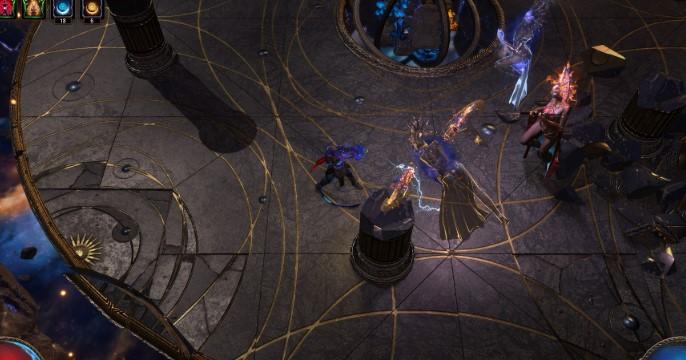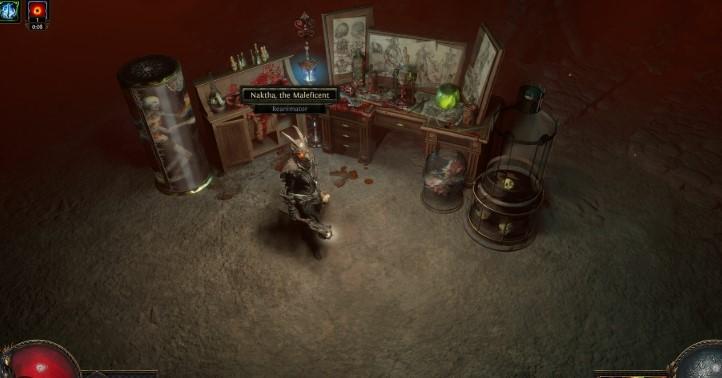Path of Exile (PoE) is renowned for its complex systems, deep character customization, and challenging endgame Path of exile currency. One of the most pivotal moments in a character’s early progression is the Trial of Ascendancy. This set of trials unlocks the powerful Ascendancy classes, which are specialized subclasses that provide unique passive bonuses and game-changing abilities. Mastering the Trial of Ascendancy is crucial for optimizing your build, unlocking new strategies, and preparing for endgame content. This guide will explain everything you need to know about the Trial of Ascendancy, including mechanics, strategies, class-specific challenges, and tips to ensure success.
What is the Trial of Ascendancy?
The Trial of Ascendancy is a sequence of three challenging encounters designed for each of the game’s core classes: Marauder, Ranger, Witch, Duelist, Templar, Shadow, and Scion. Completing these trials is necessary to unlock the Ascendancy subclasses for your chosen class. Each core class has three Ascendancy subclasses, each providing a distinct playstyle and unique set of Ascendancy passive points that significantly enhance your character’s abilities.
Ascendancy points are extremely valuable, often defining the power curve and efficiency of your character for the rest of the game. Therefore, completing the trials efficiently is essential.
How to Access the Trials
The Trial of Ascendancy becomes available in Act II of the main storyline. Players must progress through the campaign until they receive the quest to locate the Labyrinth entrances or trial arenas. The trials are usually found in special areas associated with your character’s class.
To access the Trial of Ascendancy:
Complete the main story objectives until the Labyrinth or trial entrance is revealed.
Follow the clues in your journal to find the location of your class-specific trials.
Prepare your character with appropriate gear, skills, and flasks.
Players can fail a trial and retry indefinitely, but efficient completion saves time and ensures early access to Ascendancy points.
Structure of the Trials
Each Trial of Ascendancy is designed to test three key skills: combat effectiveness, positioning, and understanding class mechanics. While specific encounters vary by class, all trials share a common structure:
1. Combat Challenges
Each trial involves waves of enemies, ranging from normal mobs to elite monsters, culminating in a mini-boss or major encounter. Success depends on your character’s damage output, survivability, and ability to control large groups of enemies. High DPS builds will excel in quickly clearing mobs, while tankier builds can survive longer engagements.
2. Environmental Hazards and Positioning
Many trials feature traps, AoE effects, or terrain hazards that require careful positioning. Standing in the wrong place can lead to instant death, even for powerful builds. Observing attack telegraphs, learning enemy patterns, and moving strategically is critical.
3. Puzzle or Mechanic Challenges
Some trials introduce mechanics that go beyond simple combat. These might include activating switches in a certain order, navigating trap-filled rooms, or handling class-specific mechanics while under pressure from enemies. Failure to interact correctly with these mechanics can result in wipes, making careful observation as important as combat skill.
Strategies for Completing the Trials
While each class has unique trial mechanics, several general strategies apply to all trials:
Understand Your Build
Knowing the strengths and weaknesses of your character is essential. Melee builds should leverage leech, armor, and endurance, while ranged or caster builds need mobility and kiting strategies. Understanding your build ensures that you can approach each trial efficiently and minimize risk.
Defensive Layers are Key
Even high-damage builds can fail if they ignore defenses. Life, energy shield, resistances, and crowd control mitigation are critical for surviving spike damage. Utility flasks, such as Quicksilver Flask for mobility or Granite Flask for armor, often make the difference between success and failure.
Observe Mechanics Carefully
Every trial introduces unique mechanics or environmental hazards. Take time to learn attack patterns, trap placement, and special enemy abilities. Trials are designed to challenge skill and observation, not just damage output.
Prioritize Mobility
Many trials require dodging AoEs, traps, or additional enemies while maintaining DPS. Movement skills like Dash, Flame Dash, Blink Arrow, or Shield Charge provide the flexibility to avoid damage while keeping up offensive pressure.
Efficiently Manage Adds
Some trials summon additional monsters or waves during encounters. Quickly eliminating these adds prevents being overwhelmed and keeps focus on the main target or mechanic. AoE skills or crowd control abilities are especially useful here.
Class-Specific Trial Examples
Each class has trials tailored to test its mechanics:
Marauder: Trials emphasize tankiness and melee combat. Juggernaut trials focus on endurance, Berserker trials reward aggressive play, and Chieftain trials test elemental interaction and sustain.
Ranger: Trials challenge movement and projectile precision. Deadeye and Raider trials require avoiding traps and using ranged attacks efficiently.
Witch: Trials test elemental and minion management. Necromancer trials require controlling minions while surviving environmental hazards.
Duelist: Trials focus on hybrid melee-ranged engagements and reflect mechanics, requiring precise positioning.
Templar: Trials challenge elemental defense and positioning, with Inquisitor trials emphasizing elemental penetration.
Shadow: Trials require trap and movement awareness. Assassin and Saboteur trials test timing and mobility to avoid damage.
Rewards of Completing the Trials
Completing all three trials for your class grants Ascendancy points, which are spent on the Ascendancy tree. These points provide substantial bonuses that can dramatically reshape your character’s build. For example:
Juggernaut (Marauder): Gains bonuses to armor, endurance charges, and sustain.
Deadeye (Ranger): Improves projectile damage and utility, enhancing ranged attacks.
Necromancer (Witch): Boosts minion damage, survivability, and summoning efficiency.
Additionally, trials often reward loot, experience, and access to the Labyrinth, where further Ascendancy points, puzzles, traps, and elite bosses await. Mastery of trial mechanics early prepares players for these more complex challenges later.
Common Mistakes in Trials
Many players struggle with the Trial of Ascendancy due to predictable errors:
Ignoring Mechanics: Failing to recognize traps, AoE attacks, or class-specific mechanics often leads to death.
Poor Flask Management: Not preparing utility or defensive flasks can be fatal during spike damage.
Overcommitting DPS: Focusing solely on damage without considering movement or hazards can result in wipes.
Neglecting Adds: Allowing summoned monsters to overwhelm you is a common mistake.
Entering Underleveled or Undergeared: Trials expect mid-game readiness; lack of preparation can make encounters unnecessarily difficult.
Avoiding these mistakes ensures smoother progression and efficient Ascendancy unlocks.
Tips for Efficient Completion
Level Appropriately: Ensure your character is within the recommended level range for the trials.
Gear for Survival: Prioritize resistances, life, and energy shield to survive sudden spikes in damage.
Learn Boss Patterns: Most trial bosses telegraph attacks; recognizing these patterns reduces unnecessary deaths.
Use Mobility Skills: Positioning and movement skills allow you to dodge traps, AoEs, and adds effectively.
Plan Your Ascendancy Choice: Understand how each subclass synergizes with your build to maximize efficiency in trials and later endgame content.
Conclusion
The Trial of Ascendancy is one of the most important early-game milestones in Path of Exile, bridging the gap between normal gameplay and the powerful Ascendancy subclasses. Each trial tests combat skill, positioning, and strategic thinking. Successfully completing all three trials for your class unlocks Ascendancy points, providing powerful bonuses that define your character’s capabilities for the rest of the game.
Completion of these trials requires preparation, observation, and skillful execution. By understanding your build, respecting mechanics, managing adds efficiently, and using mobility effectively, players can conquer these challenges and set the stage for Labyrinth completion and endgame success. Mastering the Trial of Ascendancy is not only rewarding but essential for any exile aiming to unlock their character’s full potential in POE buy currency.




